Desert Divers (6 page)
Authors: Sven Lindqvist

Under such circumstances, it was not easy to exercise the traditional Arab hospitality towards a travelling Frenchman. All the prerequisites were lacking.
Fromentin touches on the truth when he says that two societies confront each other in Laghouat: ‘One has power and words. The other is a master of silence.’
Rhetorical phrasing. The lieutenant expresses himself more clearly:
It is impossible to know how long the desire for revenge will live on,
he says
. I could swear that when the day of reckoning eventually comes, it would give them great pleasure to fill my belly with small stones or flay me alive to make a drum out of my skin.
At night the silence is broken by the howls of dogs who had fled the massacre to a rock outside the town. It proved impossible either to get them to return or to drive them away. As long as they had plenty of food on the battlefield or in the burial places, all was calm. But then the dogs turned more and more wild and began to attack passers-by like wolves.
Today, in the chapel dedicated to Sidi el-Hadj Aissa, there are the following words:
Death is the door through which we all have to go
.
True. But those faced with imperialism often had to go through it somewhat in advance.
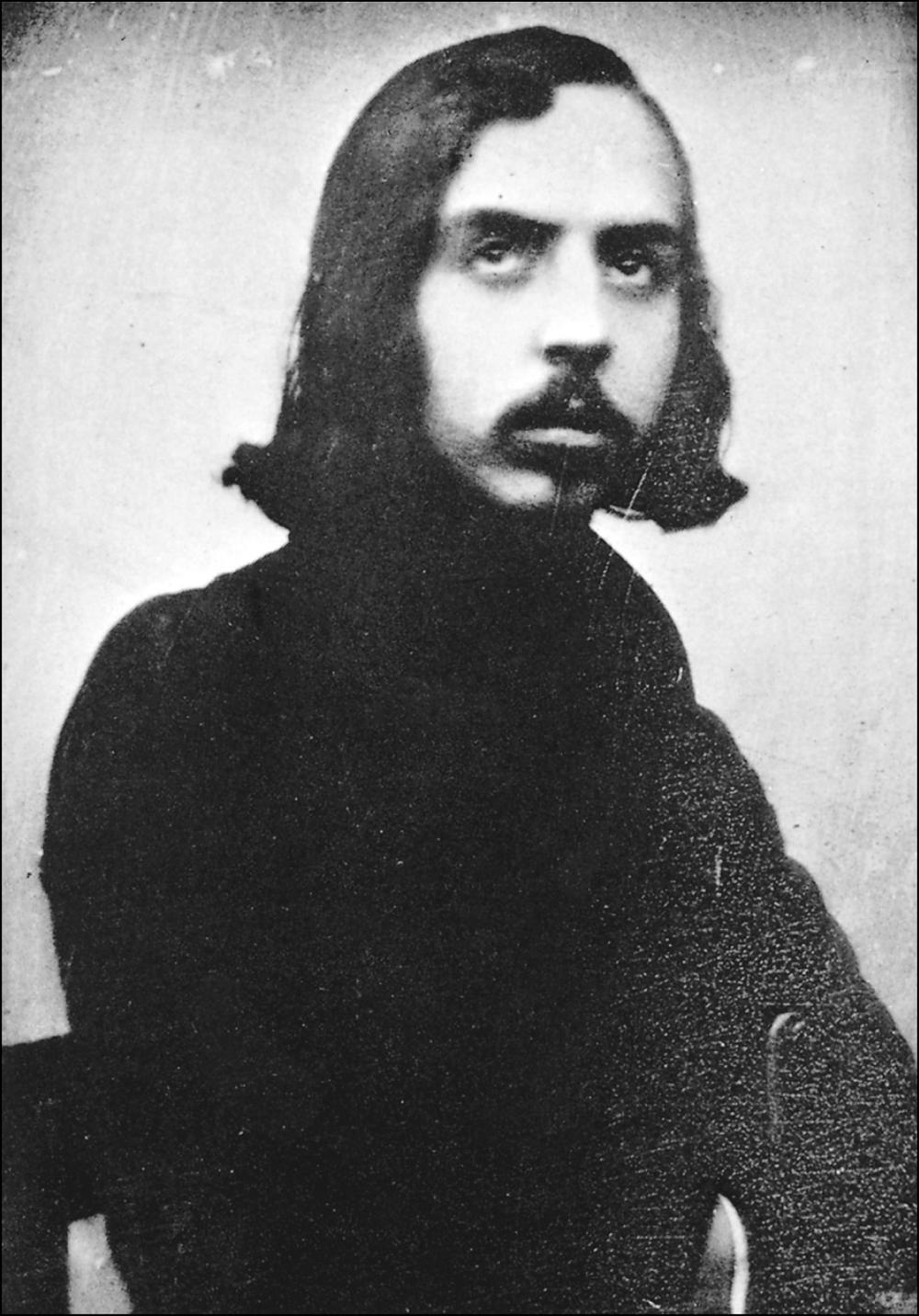
Fromentin in 1841. (
Daguerreotype by L.A. Bisson
fils.
Private collection, descendants of Eugène Fromentin
)
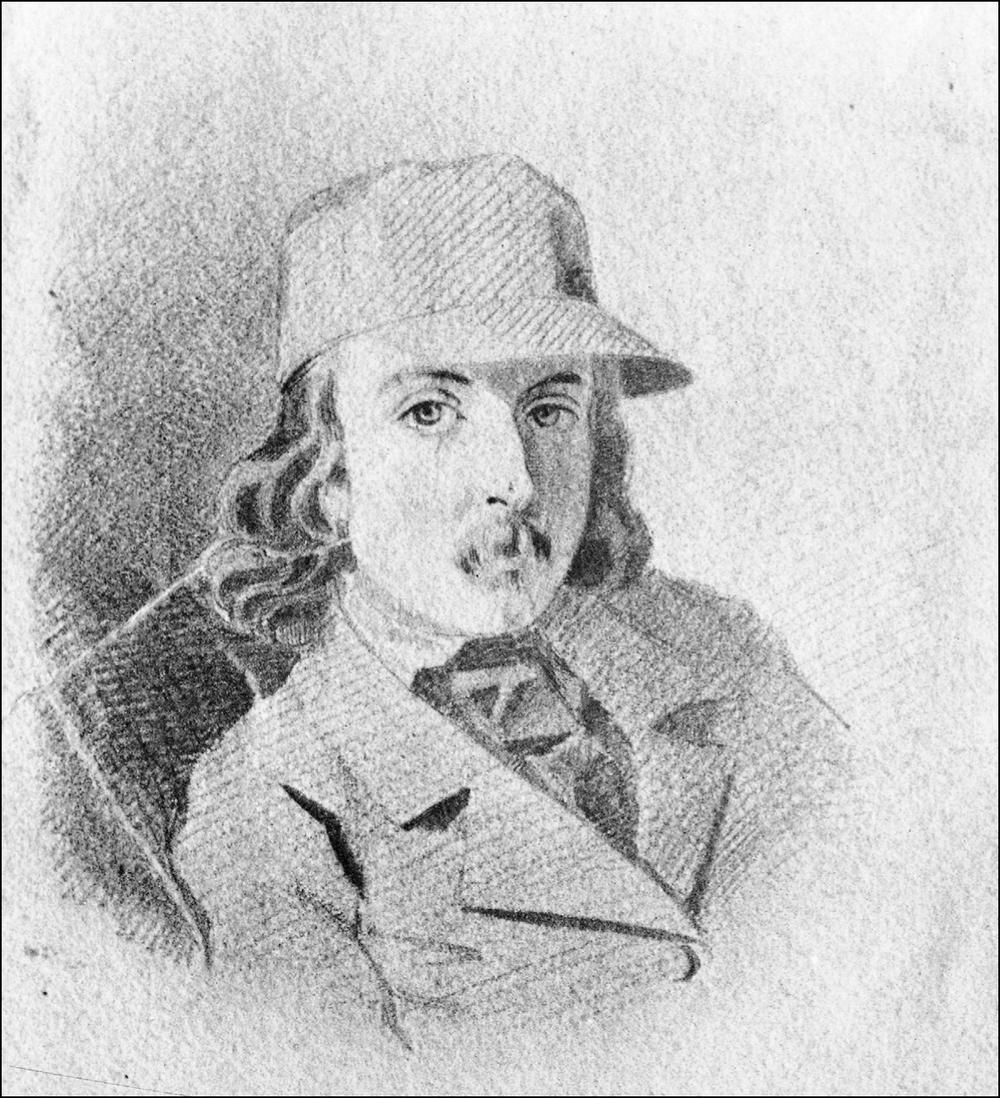
Eugène Fromentin,
Self-portrait
, early 1840s. (
Private collection, descendants of Eugène Fromentin
)
After the conquest of Laghouat, the French threw corpses down the wells to punish the town.
They had never even considered remaining there themselves. No one had dreamt a garrison would be placed so far south.
But General Pelissier decided to keep Laghouat. The French became prisoners of the town.
They were to live there. They had to have water.
To clean the wells, well-workers were conscripted from other oases. They belonged to the lowest stratum of the desert’s black proletariat. Only slave workers could be forced down into wells turned into graves.
Down there, the dead bodies had swollen with the gases of decay and were pressed against the well walls. The corpses were so firmly wedged in, they had to be levered apart.
Their flesh had begun to dissolve, the bodies disintegrating. The poisoned water became a mess of remains of corpses into which the well-divers were forced deeper and deeper.
The water-table in the northern part of the town was six metres below the surface, in the southern part twelve metres. The largest of the wells contained 256 corpses, not counting the bodies of animals.
This was something no one wanted made public. But nor did anyone try to hide it.
That year, in 1853, modern racism was born with de Gobineau’s
Essay on the Inequality of Human Races
. Also in the bookshops was Herbert Spencer’s
Social Statics
in which social Darwinism was launched, some years before Darwin produced biological Darwinism.
The French officers in North Africa could scarcely have
known about that. But they were children of their age. Some thought it, others did it.
And it was not the first time, far from it. The history of imperialism is a well full of corpses.
In Laghouat, the wells were confiscated and for the rest of the century remained under military administration. In the future, they would be cleaned out by the same black well-divers and their children, grandchildren and great-grandchildren.
I drive westwards from Laghouat. The road follows the Atlas Mountains: empty grandstands facing the endless football pitches of the desert. Signposts indicate direction and give distances straight out into the gravel – but I see no other route apart from the one I am taking.
‘Long hours of emptiness, nourished by silence,’ in the words of Isabelle Eberhardt.
In Sweden, when trying to imagine the desert, I thought of sandy beaches which never reach the water. But it is fairly rare to see beaches in the desert, which is more like an endless schoolyard: a vast, hard-packed desolation extending without end towards the horizon.
Some rocks are left behind, alone on the bare ground. They were too heavy. The light ones have gone. Everything that can has fled.
Fromentin’s success with
A Summer in the Sahara
tempted many writers to follow in his footsteps. Daudet, Gautier, Maupassant, even Flaubert, all travelled in Africa and had a relationship with the desert.
But the ultimate heir to Fromentin’s romanticism is Pierre Loti.
Both came from the French Atlantic coast – Fromentin from La Rochelle, Loti from Rochefort. Between these two towns lies a water-logged marshy area sliced through by brimfull ditches and canals, the ebb-tide exposing muddy river banks. The oyster beds overflow like Chinese rice paddies, the farmland sticky, the water flourishing and stagnating in the pools.
A landscape completely opposite to the desert. In addition, Loti was a naval officer, the sea his profession. But he had the desert within him.
In Fromentin’s life, the desert was more or less chance. In Laghouat, he accidentally found out things he never dared tell and shrouded them all in mystery, which attracted the general public. Success created a demand for his desert images, and they kept him busy, earning him a living for the rest of his life.
Loti’s desert romance is no chance. It is part of a mendacity running far deeper, embracing his whole personality.
A small boy was once given a miniature landscape by his elder brother. All through his childhood he continued to add to this wonderful landscape, which extended into a whole little world where every stone and every butterfly was charged with fantasies.
When the boy left his childhood home, he locked up his museum and sealed the door, locking in his childhood. Time was not to be allowed.
By then disaster had already struck the family. First his beloved elder brother died. Then his father was charged with embezzlement, lost his job and crawled like a rat along the walls of the houses in Rochefort. The money for which the father had been responsible had to be repaid, the family sank into poverty, the childhood home was sold, the father died and the only son took on the debt.
This is how he became a writer. This is when he adopted the pseudonym of Pierre Loti.
Fifteen years later, when everything has been paid off, he asks his ship’s watch to wake him
once an hour
to tell him he is free of debt.
When his success as an author has made him rich, he buys back the parental home and turns it into a museum of fantasy, into a world in miniature. The façade remains untouched, but he rebuilds the interior according to his exotic dreams. The old quarters are filled like a honeycomb with the different rooms of his writing: the Turkish room, the Gothic, the Renaissance salon, the Japanese room, the Chinese, the Egyptian …
One room alone is left untouched. It is the smallest of them all, squeezed between the Chamber of Mummies and the
Turkish room. It is bare, but not, like the bedroom, for calculated effect. It is simply an ordinary little French study with a black chair and a black desk.
This is where Loti worked. Here he wrote a great many of his forty books, at the same desk at which his father once did his accounts.
All around this sober little room was the scenery of his life. Few authors have had such a need to enter their dreams and inhabit them. To write a book set among Basque smugglers, he does not just live with them: he takes his Basque clothes and weapons home with him, has the back of the compound equipped as two Basque rooms and sends for an unknown Basque woman who bears him two Basque children. After work every day, he goes and plays with them for a little while.
But his existing wives, both the one at the front of the compound and the one at the back, mean less to him than the heroine in his first novel,
Aziyadé
. Every evening he retreats into his private mosque and spends several hours dreaming and weeping at her tombstone. The dead increasingly fill his existence – parents, relatives, favourite animals, all buried beneath the courtyard of his childhood home, incorporated into the museum of his life. His museum of death.
It started when he locked away his childhood. Then he locked away everything else bit by bit. He wanted to preserve, perpetuate, to prevent every change.
No wonder Loti loved the desert. In the desert all changes have already occurred. Nothing grows, nothing dies, nothing decays. Everything has gone. Only eternity remains.
The flatter the desert, the more you become imprisoned and locked in by the horizon. You welcome every movement that elevates you and provides a view. You welcome every interruption: hills with hard peaks like the neck of a broken bottle; great movable yellow boulders; or quite simply distant heights coloured milky white or pale blue by the distance.
This morning I saw a
marabout
, the sepulchre of a holy man, its distant white walls reflecting the light like a beacon.
It takes about an hour to climb up to the stillness and solitude. There is nothing there.
Nothing but a few lizard tracks in the sand.
Nothing but a few unglazed, cracked and crumbling jars, the tombstones of the poor.
Nothing but a few large split palm trunks, grey with age, their timber like pressed straw.
And then the
marabout
door glowing acid-green and sulphur-yellow in the morning sun.
Far down below, a man is hacking away in the dry riverbed and some dark men are spreading out their dark, moist dates to dry beyond a low mud wall.
I go down to them, where it is already hot in the sun. But when they greet you, the men’s hands are still cool, almost cold – as if the night had remained behind in their bodies.
The only language we had in common was our hands.
Throughout his life, Pierre has himself photographed in ever more handsome costumes. He holds his head thrown back, thrusting out one leg in order to appear taller than he is.
That is when you see how small he is. And how that tormented him.
He walks on tiptoe in high-heeled shoes. His wives are made to measure, smaller than he is himself. To be on the safe side, his mistresses are of ‘lower race’.
As a child, he read with thumping heart the letters from his admired older brother, Gustav, a ship’s doctor who took a ‘wife’ in Tahiti. On his first trip abroad, Loti goes to Tahiti and looks up his dead brother’s woman. The love of a brother, just as the little boy back home dreamt about, becomes the constantly recurring paradigm in his life and his art.
Again and again he writes the same novel. It is about a white man, often a naval officer, who has a romantic relationship with a woman of alien race or culture. She looks up to him as a higher being. Their love is estrangement, passion, departure. They part with pain, doomed to eternal longing for their lost paradise.
Once only does he fall in love with a Frenchwoman. He proposes and is turned down.
In the diary he kept with a bookkeeper’s thoroughness all his life, these are the only pages missing.
That is when he becomes a bodybuilder. He can’t change his height, but he can build up his muscles. He becomes an athlete and appears in a circus in close-fitting tricot.
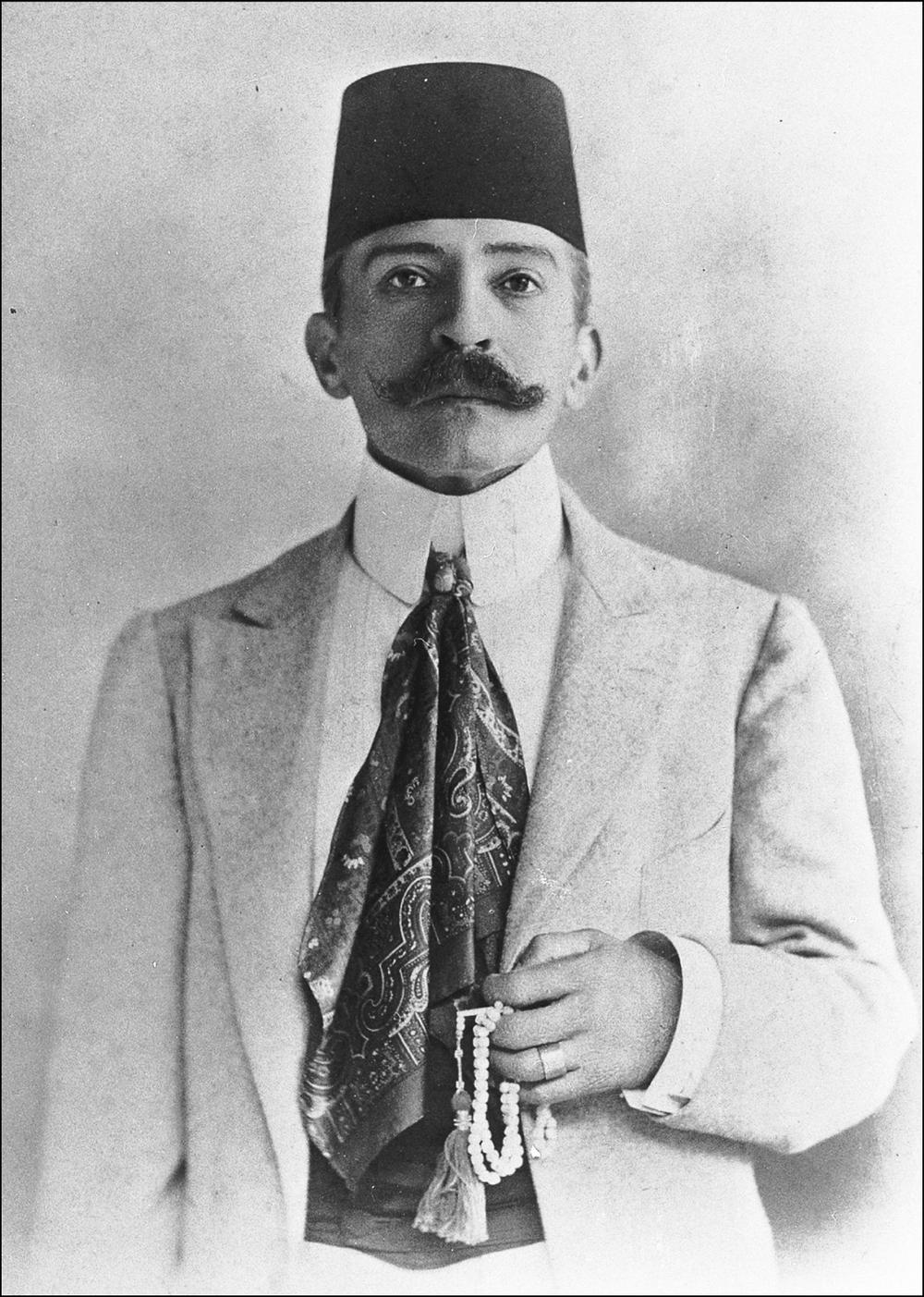
Loti as a Turkish gentleman. (
House of Pierre Loti, Rochefort, France
)
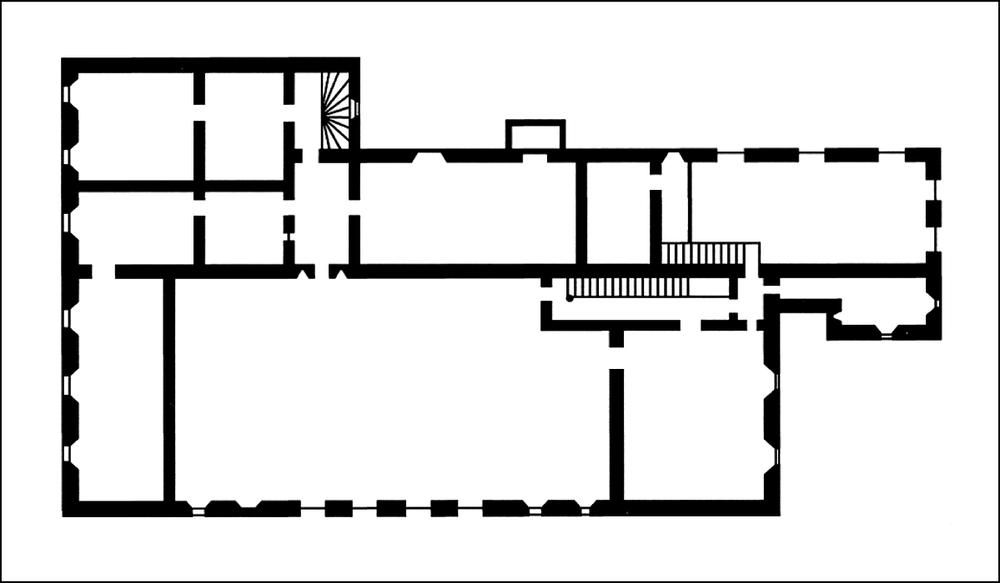
Second floor.
17: Gustave’s study. 18: Arabic room. 19: Turkish room. 20: museum of Loti’s childhood. 21: gallery of the Gothic room. 22: second storey of the Gothic room. 23: Chamber of Mummies. 24: Mosque. 25: Loti’s bedroom.

First floor.
11: terrace onto the garden. 12: Loti’s childhood bedroom. 13: Room of Bees. 14: Gothic room. 15: gallery of the Renaissance room. 16: second storey of the Renaissance room.
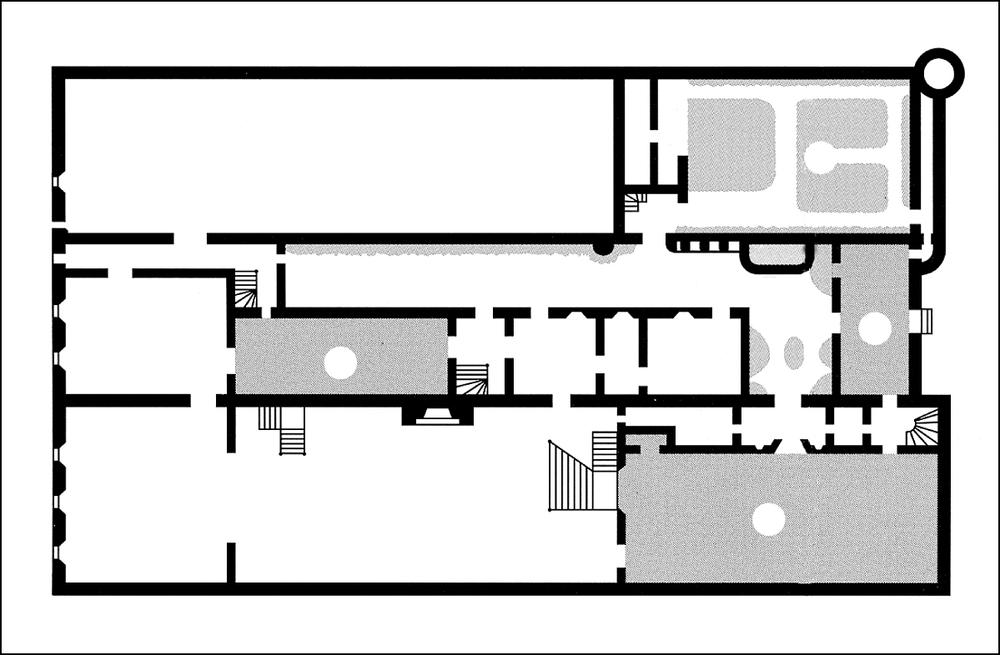
Ground floor.
1: garden. 2: Red room. 3: Japanese pagoda. 4: courtyard. 5: cloister. 6: fountain. 7: Rural room. 8: Blue room. 9: Renaissance room. 10: Chinese room.
Areas in grey no longer exist.
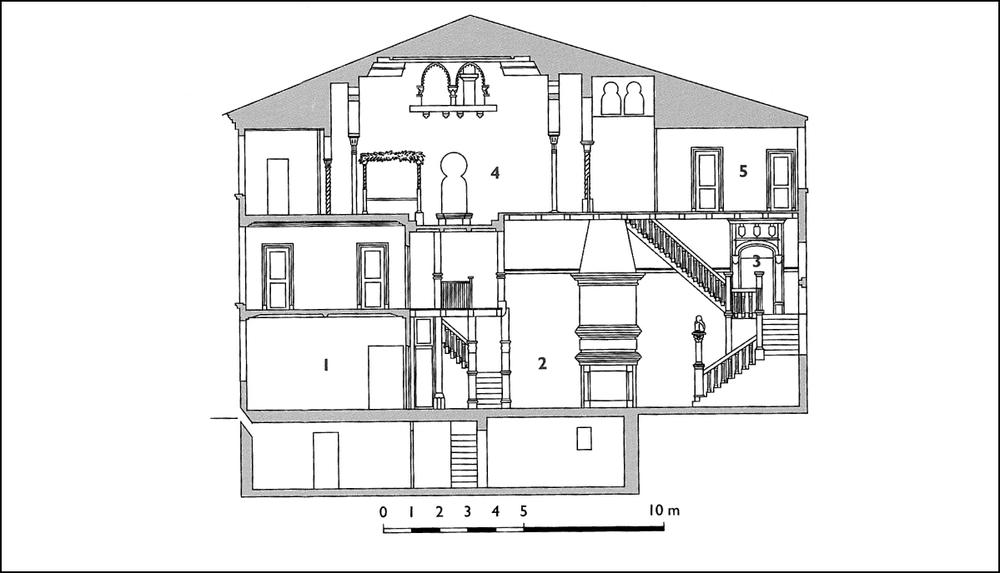
1: Blue room. 2: Renaissance room. 3: entrance to the Gothic room. 4: Mosque. 5: Loti’s bedroom.
(
Phillipe Oudin; House of Pierre Loti, Rochefort, France.
)
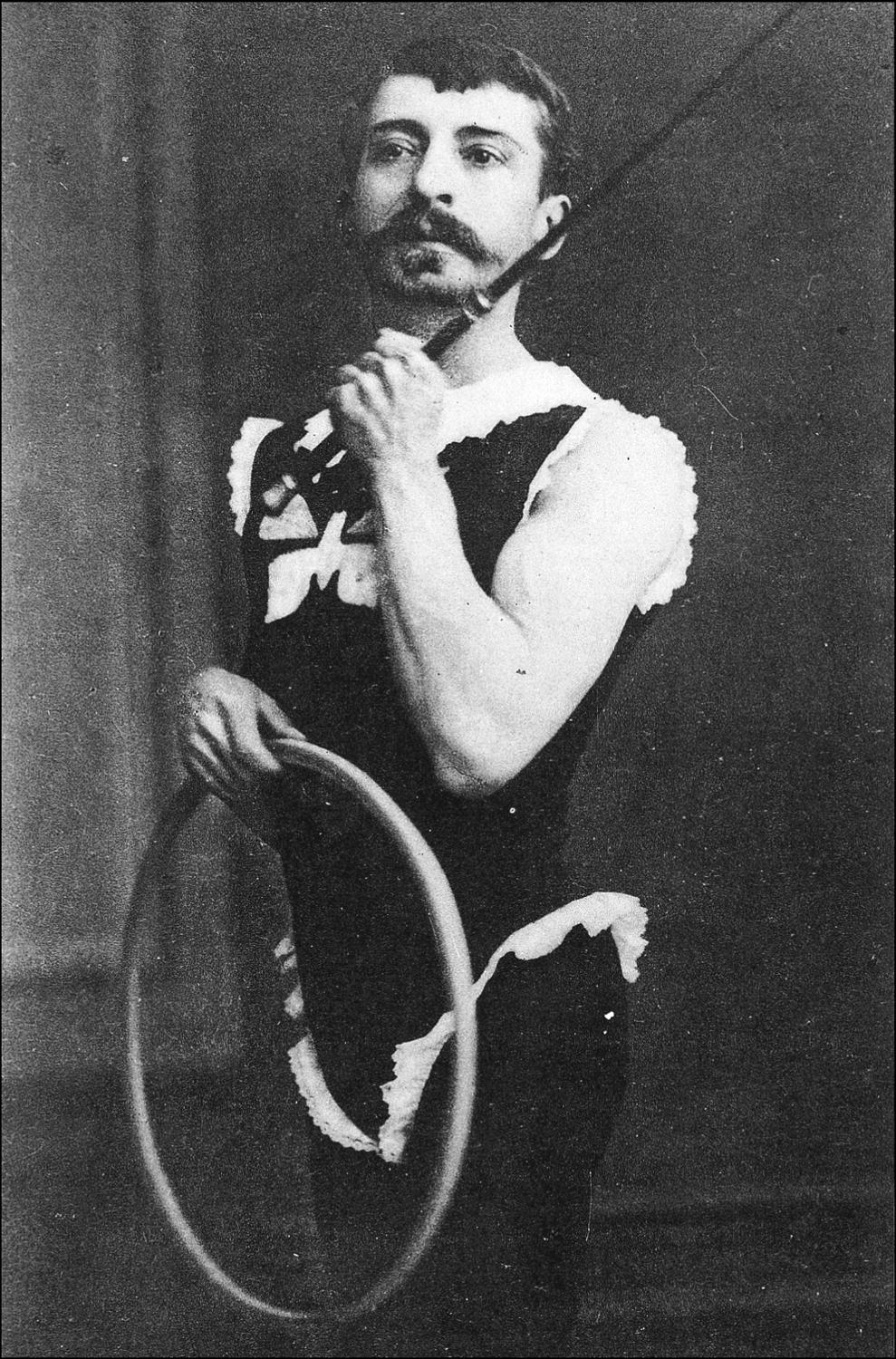
Loti as a circus performer. (
House of Pierre Loti, Rochefort, France
)